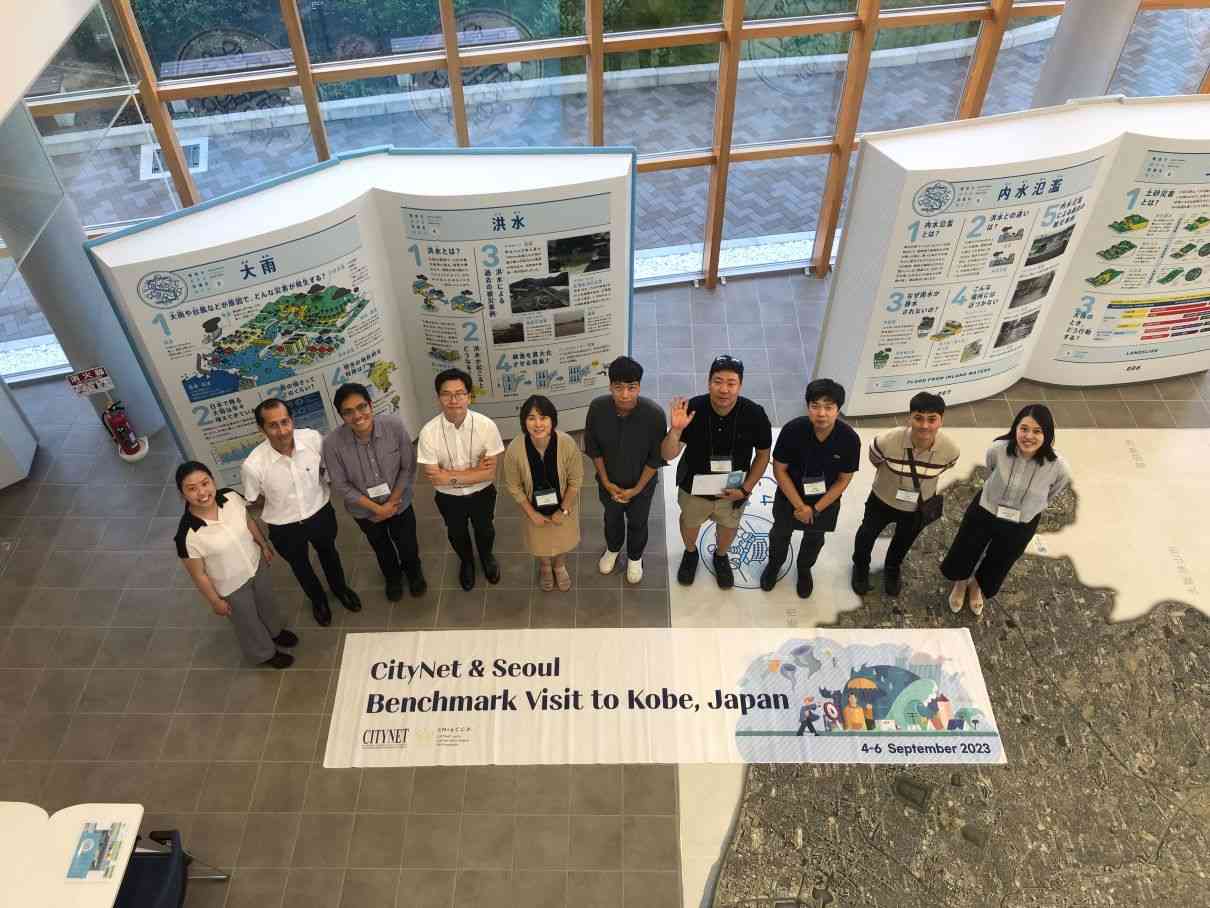Benchmark Visit From Seoul to Kobe on Disaster Risk Reduction and Crisis Management
A delegation from Seoul led by the CityNet Secretariat visited Kobe and its surrounding cities for benchmarking good practices on disaster risk reduction and crisis management as Seoul prepares to enhance its resilience to counter new challenges faced by the climate crisis.
Description
The visit was organized as a part of CityNet's initiative for the representatives from Seoul to understand the concept behind disaster risk reduction practiced by Japanese local governments as well as related stakeholders. In particular, the commitment allowed the visiting delegation to understand the policies and practices undertaken by Kobe and Sakai city which were introduced after the Great Hanshin Earthquake (Kobe Earthquake) that happened in 1995. The cities also shared their most recent initiatives to counter climate-induced disasters which have been on the rise. The visits not only included lectures and discussions but also experiential learning sessions at disaster learning centers aimed at raising public awareness of the hazards and providing scientific information.
Did the Sendai Framework change or contribute to changes in your activities/organization? If so, how?
The Sendai Framework has guided cities in CityNet to systemically develop the learning and application process to enhance their capacity to counter risks. Many of the local initiatives are anchored to the national DRR agenda.
What led you to make this commitment/initiative?
What was your position before making this Voluntary Commitment / prior to the Sendai Framework?
As a network of local governments in the Asia-Pacific region, there is still a vast majority of cities and communities that are at increased risk from disasters. To accelerate the learning process through direct exchanges and field visits, CityNet, through its Disaster Cluster supports a diverse range of knowledge exchanges for its members.

